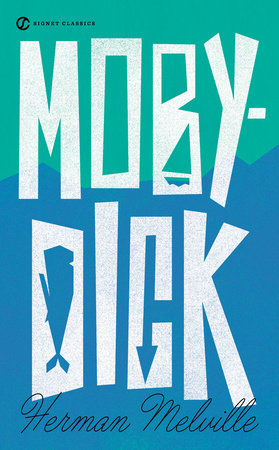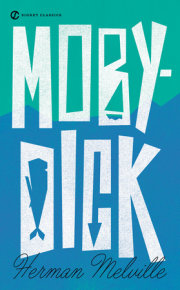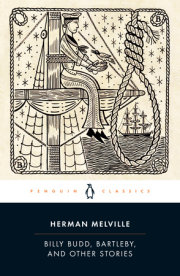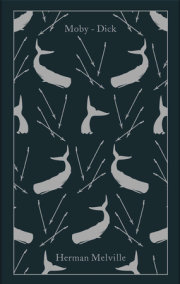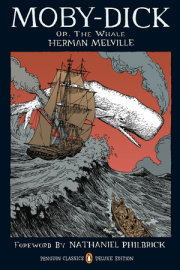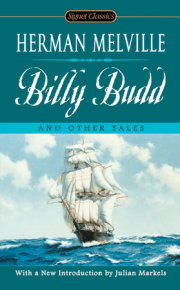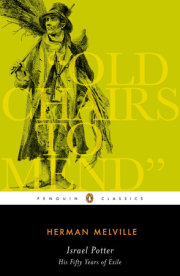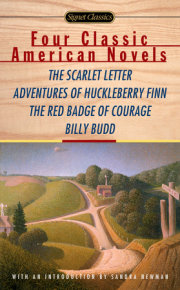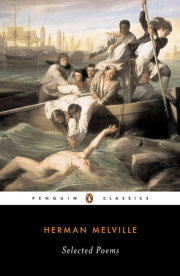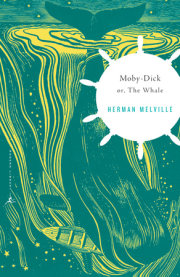Herman Melville was born in New York City in 1819. When his father died, he was forced to leave school and find work. After passing through some minor clerical jobs, the eighteen-year-old young man shipped out to sea, first on a short cargo trip, then, at twenty-one, on a three-year South Sea whaling venture. From the experiences accumulated on this voyage would come the material for his early books,
Typee (1846) and
Omoo (1847), as well as for such masterpieces as
Moby-Dick (1851),
Pierre (1852),
The Piazza Tales (1856), and
Billy Budd, Sailor,
and Other Stories (posthumous, 1924).
Though the first two novels—popular romantic adventures—sold well, Melville's more serious writing failed to attract a large audience, perhaps because it attacked the current philosophy of transcendentalism and its espoused "self-reliance." (As he made clear in the savagely comic
The Confidence Man (1857), Melville thought very little of Emersonian philosophy.) He spent his later years working as a customs inspector on the New York docks, writing only poems comprising
Battle-Pieces (1866). He died in 1891, leaving
Billy Budd, Sailor, and Other Stories unpublished.
View titles by Herman Melville

